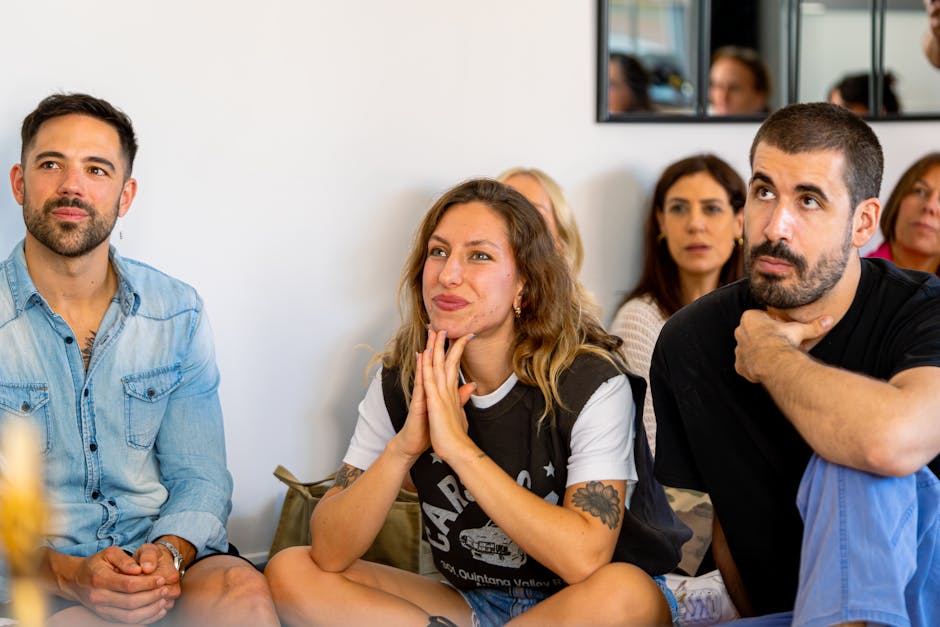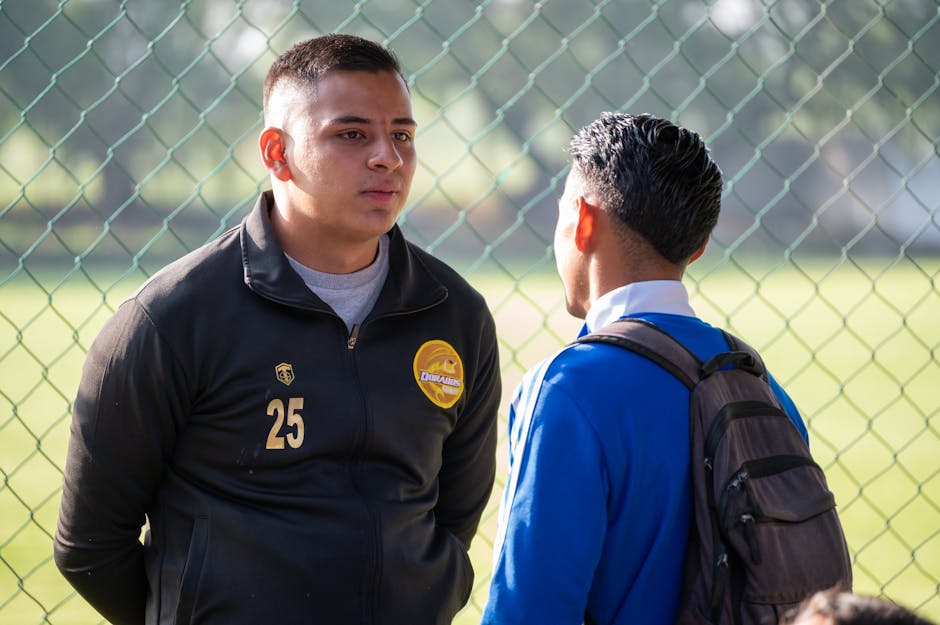How often do you find yourself nodding along while your friend speaks, only to realize you’ve zoned out halfway through? Being a better listener isn’t just about hearing words; it’s about truly connecting. Good listening can strengthen friendships, build trust, and even help you understand yourself better. If you’ve ever wondered how to improve this essential skill, keep reading—you’re about to learn how to become the friend everyone feels heard by.
Key Takeaways
- Listening is a cornerstone of strong friendships and meaningful relationships.
- Active listening involves focus, empathy, and non-verbal cues.
- Emotional support is about creating a safe space, validating feelings, and avoiding judgment.
- Practical tips like mindfulness and open-ended questions can improve your listening skills.
- Effective listening strengthens communication in personal and professional relationships.
Understanding the Importance of Being a Better Listener
Why Listening Matters in Friendships
Friendships thrive on mutual understanding, and listening is the glue that holds them together. When you genuinely listen, you show your friends that their thoughts and feelings matter. It’s not just about solving their problems—it’s about being present.
Think about it: how often do you feel closer to someone simply because they gave you their undivided attention? Listening is a gift, and it’s one of the simplest ways to show you care.
The Impact of Good Listening on Relationships
Good listening can transform relationships. It builds trust, reduces misunderstandings, and fosters deeper connections. When your friends feel heard, they’re more likely to open up, creating a cycle of honest communication.
On the flip side, poor listening can lead to frustration and distance. Imagine pouring your heart out to someone who’s scrolling through their phone. It stings, doesn’t it?
Common Barriers to Effective Listening
Let’s face it—listening isn’t always easy. Distractions, assumptions, and even our own eagerness to respond can get in the way.
Here are some common barriers:
- Interrupting: Cutting someone off mid-sentence can make them feel dismissed.
- Judging: Jumping to conclusions before they’ve finished speaking.
- Distractions: Checking your phone or letting your mind wander.
Recognizing these barriers is the first step to overcoming them.

Developing Active Listening Skills
What is Active Listening?
Active listening is more than just hearing words—it’s about fully engaging with the speaker. It involves focusing on their words, understanding their emotions, and responding thoughtfully.
Think of it as a dance: you’re not just waiting for your turn to move; you’re in sync with your partner.
Techniques to Stay Present During Conversations
Maintaining Eye Contact
Eye contact is like a bridge—it connects you to the speaker. It shows you’re paying attention and encourages them to keep sharing.
Avoiding Interruptions
Let your friend finish their thoughts before jumping in. Even if you’re excited to respond, hold back. It’s their moment to speak.
Using Non-Verbal Cues
A nod, a smile, or even a simple “mm-hmm” can go a long way. These cues show you’re engaged without stealing the spotlight.
The Role of Empathy in Listening
Empathy is the heart of good listening. It’s about putting yourself in your friend’s shoes and feeling what they feel.
For example, if your friend is venting about a tough day, don’t just say, “That sucks.” Instead, try, “That sounds really frustrating. How are you holding up?”

Providing Emotional Support to Friends
How to Listen to a Friend Who is Feeling Down
Creating a Safe Space for Sharing
Make it clear that your friend can speak freely without fear of judgment. Sometimes, just saying, “I’m here for you,” can open the floodgates.
Validating Their Feelings
Avoid phrases like, “It’s not a big deal.” Instead, acknowledge their emotions: “I can see why you’d feel that way.”
Offering Support Without Judgment
Your job isn’t to fix their problems—it’s to be there. Offer support, but don’t push solutions unless they ask.
Strategies for Listening to an Angry Friend
Staying Calm and Patient
Anger can be overwhelming, but staying calm helps de-escalate the situation. Take deep breaths and focus on their words, not their tone.
Acknowledging Their Emotions
Say something like, “I can tell this really upset you.” It shows you’re listening and validates their feelings.
Avoiding Defensive Responses
Even if their anger feels directed at you, resist the urge to defend yourself immediately. Let them vent first.

Practical Tips to Improve Listening Skills
9 Ways to Enhance Your Listening Abilities
Practicing Mindfulness
Mindfulness helps you stay present. Try focusing on your breath or the sound of their voice to avoid zoning out.
Asking Open-Ended Questions
Questions like, “How did that make you feel?” encourage deeper conversations.
Reflecting on What You Hear
Paraphrase what they’ve said to show you understand: “So, you’re saying you felt left out at the party?”
Overcoming the Challenges of Being the Listener
Setting Boundaries When Needed
It’s okay to say, “I want to give you my full attention, but can we talk later when I’m less distracted?”
Balancing Listening and Sharing
Friendship is a two-way street. Share your thoughts too, so the relationship feels balanced.

Strengthening Communication in Different Relationships
How to Listen to Your Partner Effectively
Understanding Their Perspective
Ask yourself, “What are they really trying to say?” This helps you focus on their emotions, not just their words.
Avoiding Assumptions
Don’t assume you know what they’re going to say. Let them express themselves fully.
Tips for Listening to Your Child
Encouraging Open Dialogue
Create an environment where your child feels comfortable sharing. Ask questions like, “What was the best part of your day?”
Responding with Patience and Understanding
Kids may take longer to articulate their thoughts. Be patient and let them find their words.
The Importance of Listening in Professional Settings
Building Trust with Colleagues
Listening shows respect and fosters trust. It’s a key ingredient for strong workplace relationships.
Enhancing Team Collaboration
When everyone feels heard, teamwork improves. Listening can turn a group of individuals into a cohesive team.
Becoming a better listener isn’t about perfection—it’s about progress. Start small: put your phone away during conversations, ask thoughtful questions, and practice empathy. Over time, these habits will become second nature, and your friendships will flourish.
For more tips on improving communication, check out our guide on developing effective communication skills. Or, if you’re looking for ways to deepen your connections, explore our article on strategies for building and maintaining strong friendships.
Listening isn’t just a skill—it’s a superpower. Use it wisely, and watch your relationships transform.
FAQ: How to Be a Better Listener with Friends? Tips for Meaningful Connections
Why is being a good listener important in friendships?
Being a good listener strengthens trust and deepens your bond with friends. It shows that you value their thoughts and feelings, creating a safe space for open communication and mutual support.
What are the key traits of a good listener?
Key traits include maintaining eye contact, showing empathy, avoiding interruptions, and providing thoughtful responses. A good listener also pays attention to non-verbal cues and validates the speaker’s emotions.
How can I avoid interrupting my friends while they speak?
Practice patience by focusing on their words and resisting the urge to respond immediately. Use techniques like silently nodding or mentally summarizing their points to stay engaged without interrupting.
What should I do if I get distracted during a conversation?
If you find your mind wandering, gently redirect your focus to the conversation. Apologize if necessary and ask clarifying questions to re-engage and show your interest in what they’re saying.
How can I show empathy while listening?
Empathy can be shown by acknowledging their feelings, using phrases like ‘That sounds tough’ or ‘I can see why you feel that way.’ Avoid judgment and let them know their emotions are valid.
What role does body language play in active listening?
Body language is crucial—it conveys attentiveness and interest. Maintain eye contact, nod occasionally, and face the speaker. Avoid crossing your arms or looking at your phone, as these can seem disengaged.
How can I encourage my friends to open up more?
Create a non-judgmental environment by listening without criticism and asking open-ended questions. Show genuine curiosity about their thoughts and feelings, and reassure them that you’re there to support them.
What should I avoid doing when trying to be a better listener?
Avoid interrupting, offering unsolicited advice, or making the conversation about yourself. These behaviors can make your friend feel unheard or dismissed. Focus on understanding their perspective instead.
How can I balance listening and sharing in a conversation?
Aim for a natural flow by listening attentively and sharing your thoughts when appropriate. Conversations should feel mutual, so ensure you’re giving your friend enough space to express themselves fully.
Can I improve my listening skills over time?
Absolutely! Like any skill, listening improves with practice. Be mindful of your habits, seek feedback from friends, and actively work on being present in conversations. Over time, you’ll become a more empathetic and attentive listener.



